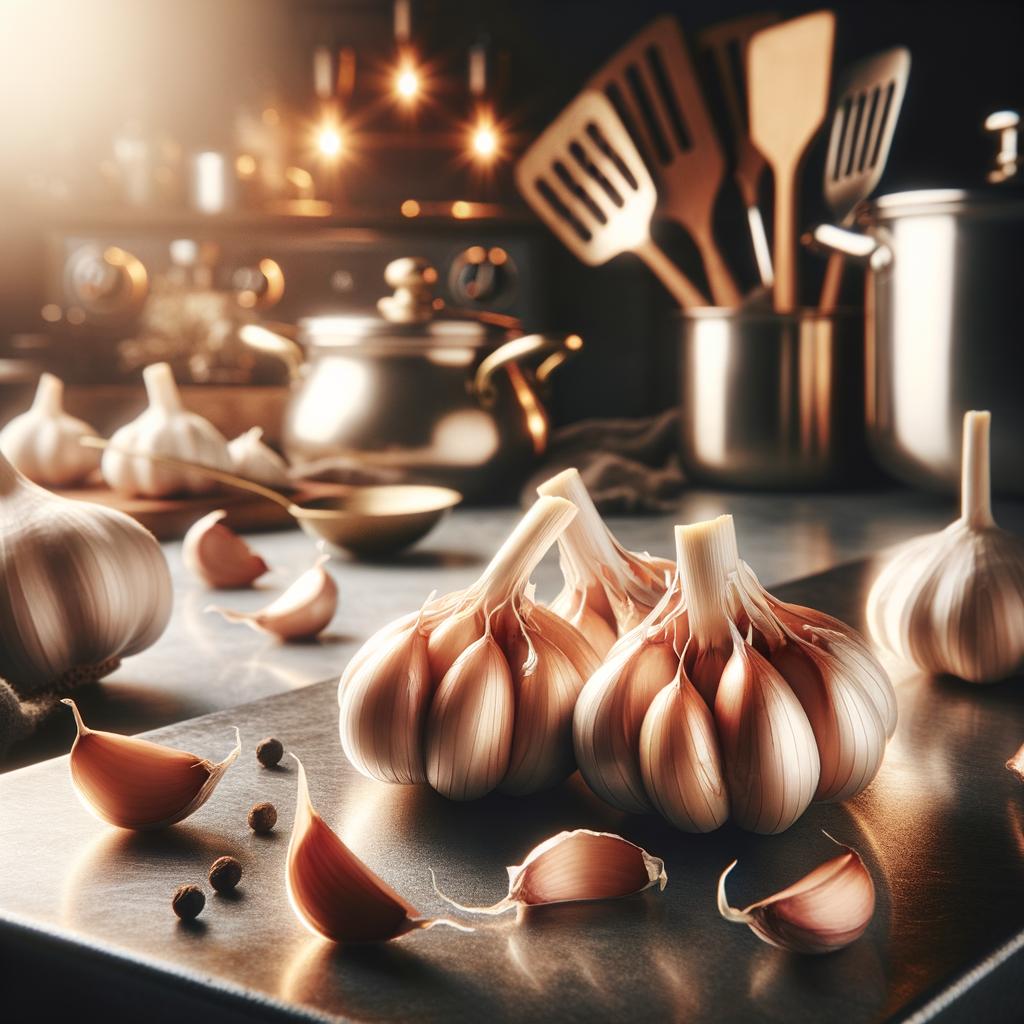Garlic Cloves

Description
Garlic, a beloved ingredient among culinary enthusiasts, is more than just a humble kitchen staple. It's a small, white bulb encased in a thin, papery skin that peels away to reveal individual cloves. Each clove is a powerhouse of flavor, releasing a pungent and spicy aroma that sweetens upon cooking. The texture is firm yet yielding, and when crushed, it transforms into a sticky, flavorful paste. The unique characteristic of garlic is its ability to morph flavor profiles under different cooking methods - raw, it's sharp and intense; roasted, it becomes mellow and almost caramel-like.
Primary Uses
Garlic is a universal ingredient, found in virtually every cuisine around the world. It's used in everything from sauces, marinades, and dressings to stir-fries, roasts, and soups. It can be used raw, sautéed, roasted, or even fermented into black garlic. In non-culinary uses, garlic has been revered for its medicinal properties, such as boosting the immune system and reducing blood pressure. Its cultural significance is also noteworthy, especially in folklore where it's believed to ward off evil spirits.
History
Garlic has a rich and storied history dating back over 5,000 years. It's believed to have originated in Central Asia, spreading across the globe over centuries. It was consumed by Egyptian pyramid builders for strength, used as a currency in ancient Rome, and was a staple in the diet of soldiers during World War II. Over time, garlic has evolved from a medicinal plant to a culinary must-have, its popularity only increasing with the advent of dishes like garlic bread and chicken garlic roast. One intriguing folklore tale is that of the mythical creature, the vampire, which is said to be repelled by garlic.
Nutritional Information
Garlic is not only a flavor enhancer but also a nutritional powerhouse. It's rich in Vitamin C, Vitamin B6, and Manganese. It also contains trace amounts of various other nutrients, making it a low-calorie ingredient with immense health benefits. The sulfur compounds in garlic have been known to combat sickness, including the common cold, and its consumption helps in reducing heart disease risk factors. Comparatively, while onions, a close relative of garlic, also offer numerous health benefits, garlic stands out due to its antimicrobial and anti-inflammatory properties.

